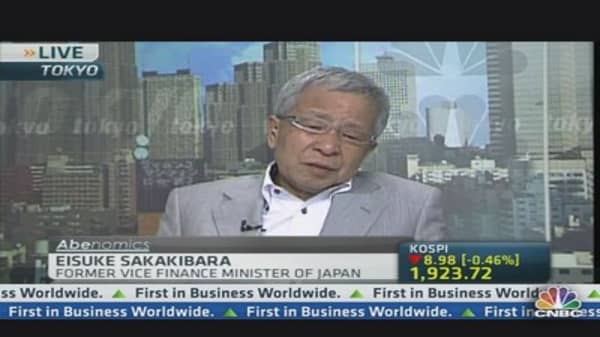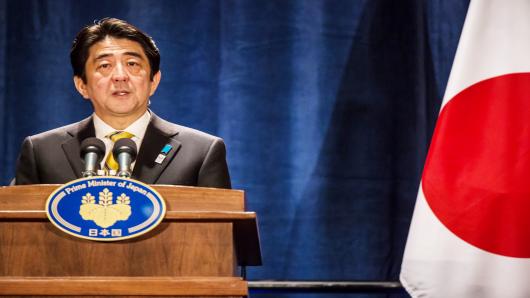With elections to Japan's upper house of parliament around the corner, Eisuke Sakakibara, former vice finance minister of Japan, says he's not hopeful Prime Minister Shinzo Abe will announce any ground-breaking structural reforms in the coming weeks or even thereafter.
"Because of the election, he [Abe] can't really spill out the specifics of the reforms - radical reforms might hurt his constituency particular in the rural areas," Sakakibara, who is currently a professor at Aoyama Gakuin University, told CNBC Asia's "Squawk Box" on Tuesday.
"Of course, people expect structural reforms after the election but I'm not optimistic about that. It's very difficult to bring about the structural reforms," he added.
(Read More: Japan PM Abe Unveils Plan for tax Cuts to Boost Capex)
The high stakes upper house elections are scheduled to take place on July 21. If Abe's Liberal Democratic Party (LDP) - which already controls the lower house together with its coalition partner the New Komeito Party - wins a majority in the upper house, it could make it much easier to pass through legislation.
Structural reforms are seen as the key for unlocking Japan's longer term growth potential, and without them economists believe "Abenomics" is unlikely to succeed.
Abe's highly anticipated structural reform package - known as the "third arrow" - announced last week disappointed investors who were expecting it to match the aggressiveness of the previous two arrows of monetary and fiscal stimulus in his three-pronged growth strategy.
(Read More: Japan Fires 'Third Arrow', but Will It Work?)
While he outlined measures such as setting up special economic zones to attract investment and raising incomes by 3 percent annually, the prime minister failed to address reforms surrounding the labor market and corporate taxes.
"Things that were listed in the 'third arrow' were things that have been talked about for a long time. Nothing really new came out of the 'third arrow.' It was quite disappointing to the markets and I was disappointed as well," Sakakibara said.





